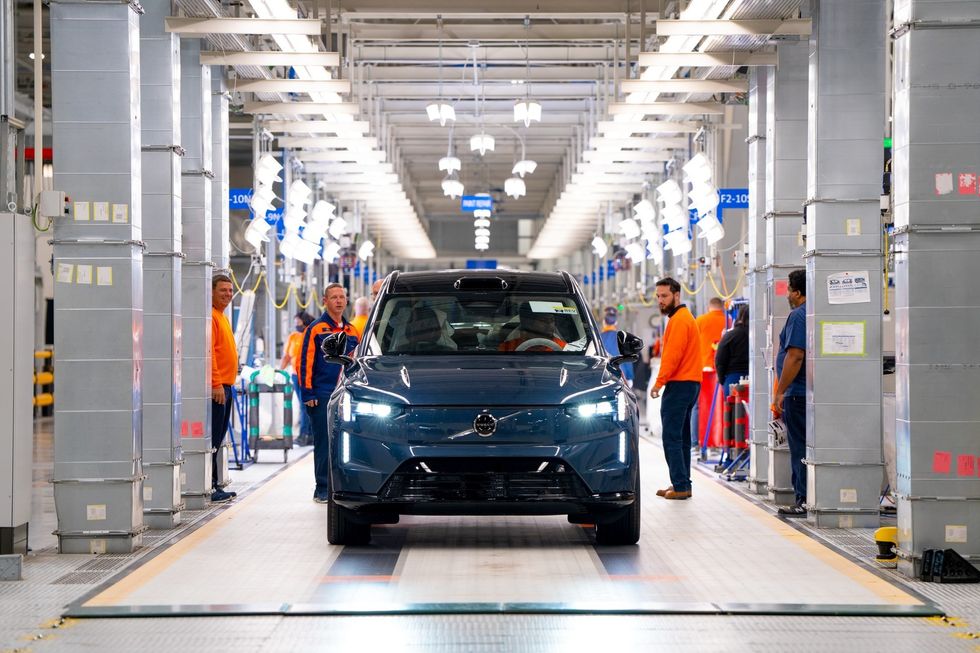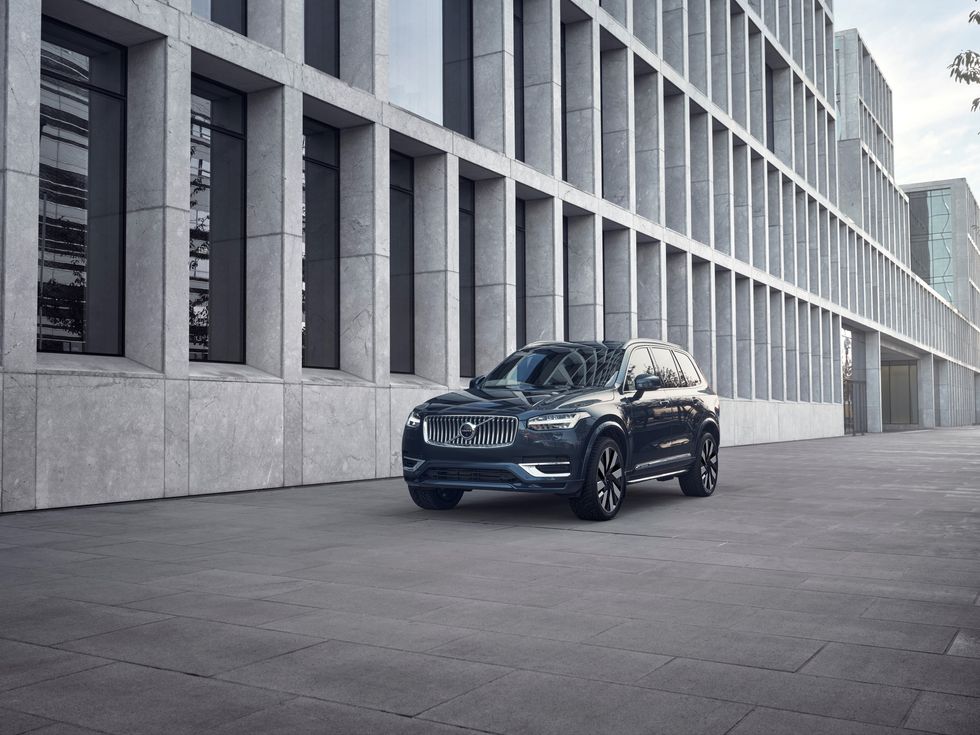Chinese-owned carmaker sees electric vehicle sales drop with thousands of redundancies on the table

Volvo saw electric car sales in May fall by 27 per cent marking the second month of decline
Don't Miss
Most Read
A major Chinese-owned car brand saw its electric car sales plummet in May as drivers continue to stick with petrol and diesel vehicles.
Volvo saw its electric car sales drop by 27 per cent while its vehicle sales fell 12 per cent to 59,822 units in May, according to the newly released figures.
The carmaker, which is majority-owned by China's Geely, said electric vehicles accounted for just 21 per cent of total sales volumes in May.
Overall, electrified cars, including plug-in hybrids, dropped 20 per cent to represent 44 per cent of total sales, marking a sharp change from the previous year.
Do you have a story you'd like to share? Get in touch by emailing motoring@gbnews.uk

Volvo announced in April that it would be making redundancies across its workforce
| VOLVOThe disappointing figures come as Volvo grapples with mounting pressures, including high costs, slowing electric vehicle demand and trade uncertainty.
These latest results add to concerns about Volvo's performance after the company announced plans to cut thousands of jobs as it faces headwinds from US President Donald Trump's new tariffs.
The redundancy programme forms part of an accelerated cost and cash action plan totalling 18 billion Swedish Krona (£1.9billion) that Volvo launched in late April.
The company confirmed that approximately 3,000 positions would be eliminated, with 1,200 jobs cut across its Swedish operations and a further 1,000 consultant positions terminated, primarily in Sweden.
"These are difficult decisions to make, but are vital to making us stronger and even more resilient," said Håkan Samuelsson, who returned as president and chief executive in April after the former head, Jim Rowan, stepped down.
The plan includes three billion Swedish Krona (£230million) in variable cost reductions and five billion Swedish Krona (£380million) in indirect cash spending efficiencies, with half impacting earnings before interest and tax in 2026.
Volvo said it expects to complete all structural changes resulting from its strategic review by the third quarter of 2025. Volvo's first-quarter 2025 results revealed the depth of its challenges, with retail sales down six per cent to 172,200 units and revenue falling 12 per cent to 82.9 billion Swedish Krona (£6.38billion).
The company withdrew its financial guidance for 2025 and 2026, citing "external developments and increased uncertainties".
LATEST DEVELOPMENTS:
- Petrol and diesel prices drop to four-year low with supermarket fuel stations offering 'excellent bargains'
- Electric car sales soar as UK sees 'clear shift in the market' with drivers ditching petrol and diesel
- Blue Badge abuse at crisis level as 52 drivers fight for one parking space as offenders face £1,000 fine
Samuelsson, who previously led Volvo from 2012 to 2022, acknowledged in the Q1 update that "2025 will be a challenging and transition year given the uncertainties around macroeconomic, geopolitical and market developments".
Despite the sharp decline in electric vehicle sales, Volvo maintained its commitment to full electrification with Samuelsson stating in the first-quarter report that the brand remained "firm on becoming a fully electric car company" due to it being "the fastest growing segment".
However, the company acknowledged pragmatic adjustments to its strategy. "Demand for our plug-ins will remain stronger for longer than we thought three years ago, and we are ready for that," Samuelsson said.
Volvo revealed plans for its first extended-range plug-in hybrid specifically for China, recognising the need for "a transitional plug-in product for people and locations not yet ready for electric cars".

Volvo said it remains committed to electric vehicles despite sales dipping
| VOLVOVolvo's Chinese ownership under Geely has become increasingly significant as the company navigates trade tensions and tariff pressures.
The carmaker revealed it is currently restructuring its global operations into three streamlined regions across the Americas, Greater China, Europe and the rest of the world.
"We need to adapt to a more regionalised world," Samuelsson explained, outlining plans for "a more tailored approach for each region in terms of product, technology, manufacturing and commercial".
The company started production of its EX30 electric SUV at its Ghent plant in Belgium in April.











